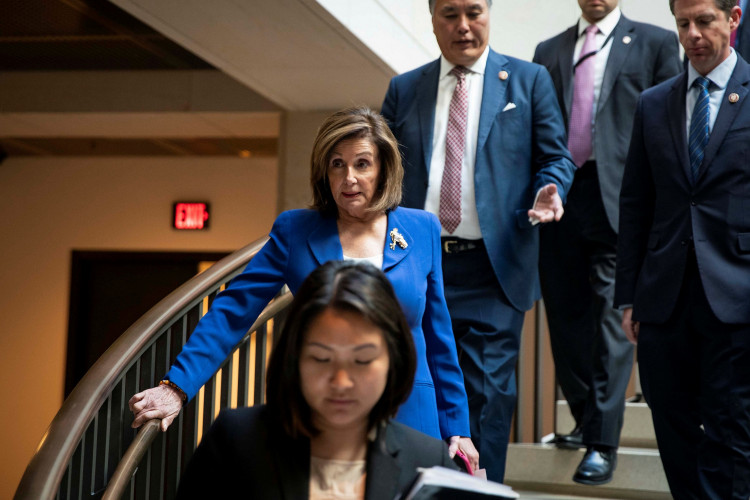United States House Democrats on Wednesday evening made the first move in containing President Donald Trump's war-making power amid ongoing tensions with Iran following the death of top Iranian military leader Qasem Soleimani last week.
According to The New York Times, House Democrats are looking to vote on Thursday to force Trump to stop potential war with the Iranian side. Should the voting push through and depending on the results, Trump will not have military power unless he gets authorization from Congress, House Speaker Nancy Pelosi explained.
The announcement came hours after Trump said he would not further escalate military tensions against Iran despite missile strikes on two Iraqi bases earlier on Tuesday. The targeted bases housed American troops.
Most Republican lawmakers expressed approval for Trump's move of ordering an airstrike that killed Soleimani. Some have also backed his previous threats of targeting 52 Iranian sites.
On the other hand, Pelosi argued that Democrats have "serious, urgent concerns" about the president's move of engaging "in hostilities against Iran." She added that the current administration seems to have lack proper strategies in winding down tensions.
On Wednesday's nation address, Trump said, "The United States is ready to embrace peace with all who seek it." He also called for additional economic sanctions on the country. It remains to be seen whether new military action will be implemented.
The U.S. also told the United Nations on Wednesday that Soleimani's killing was an act of self-defense, Reuters reported. The White also vowed that it would take "necessary" action if the need arises in terms of protection American interests.
In a letter addressed to the U.N. Security Council from U.S. Ambassador Kelly Craft, it was stated that Washington was prepared to negotiate with Iran. Craft said in the letter that the U.S. side had goals of "international peace" and prevention of further conflict.
Craft further explained that the airstrike against Iran and Soleimani were carried out following a series of attacks on American forces deployed in the Middle East.
While the two sides dropped signals about backing away from a potential all-out war, some experts noted that it is still unclear what Washington or Tehran will do as they wait on action from either side.
Furthermore, some signs pointed to Iran making a calculated move of ensuring that no casualties will result from Tehran's retaliation. Analysts said the Iranian government might have tried to satisfy the masses' call for revenge following Soleimani's passing.
The U.S. and Iran have yet to announce whether the nations will meet to discuss a potential truce on military retaliation or further action.





